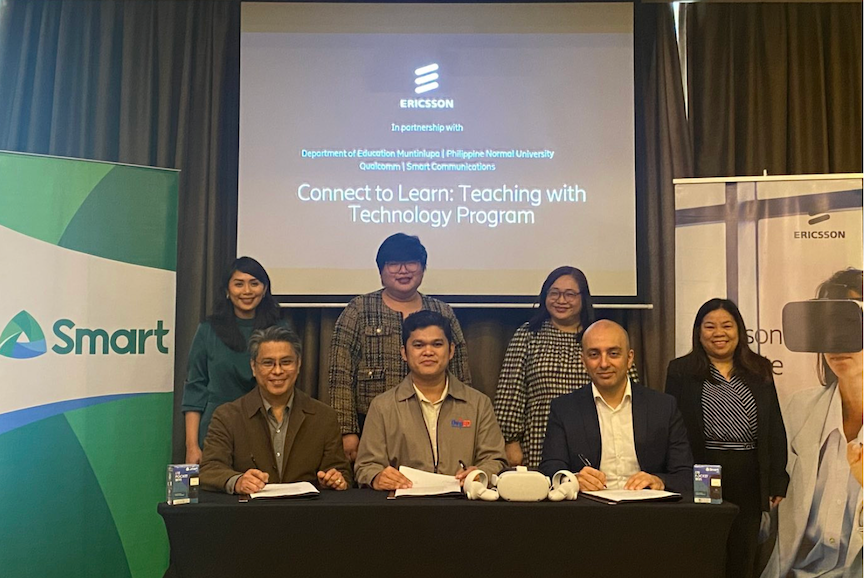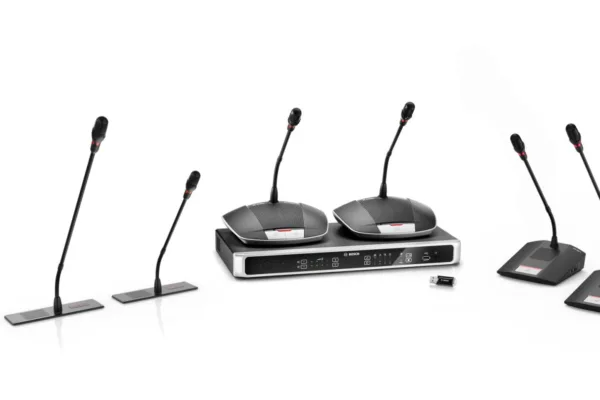by Alexis Tuble, Correspondent
Ericsson, a global leader in telecommunications, is advancing digital education in the Philippines through its innovative Connect to Learn: Teaching with Technology program.
This initiative equips Filipino educators with vital digital skills through Virtual Reality (VR) and eLearning technologies, aiming to improve the quality of education nationwide.
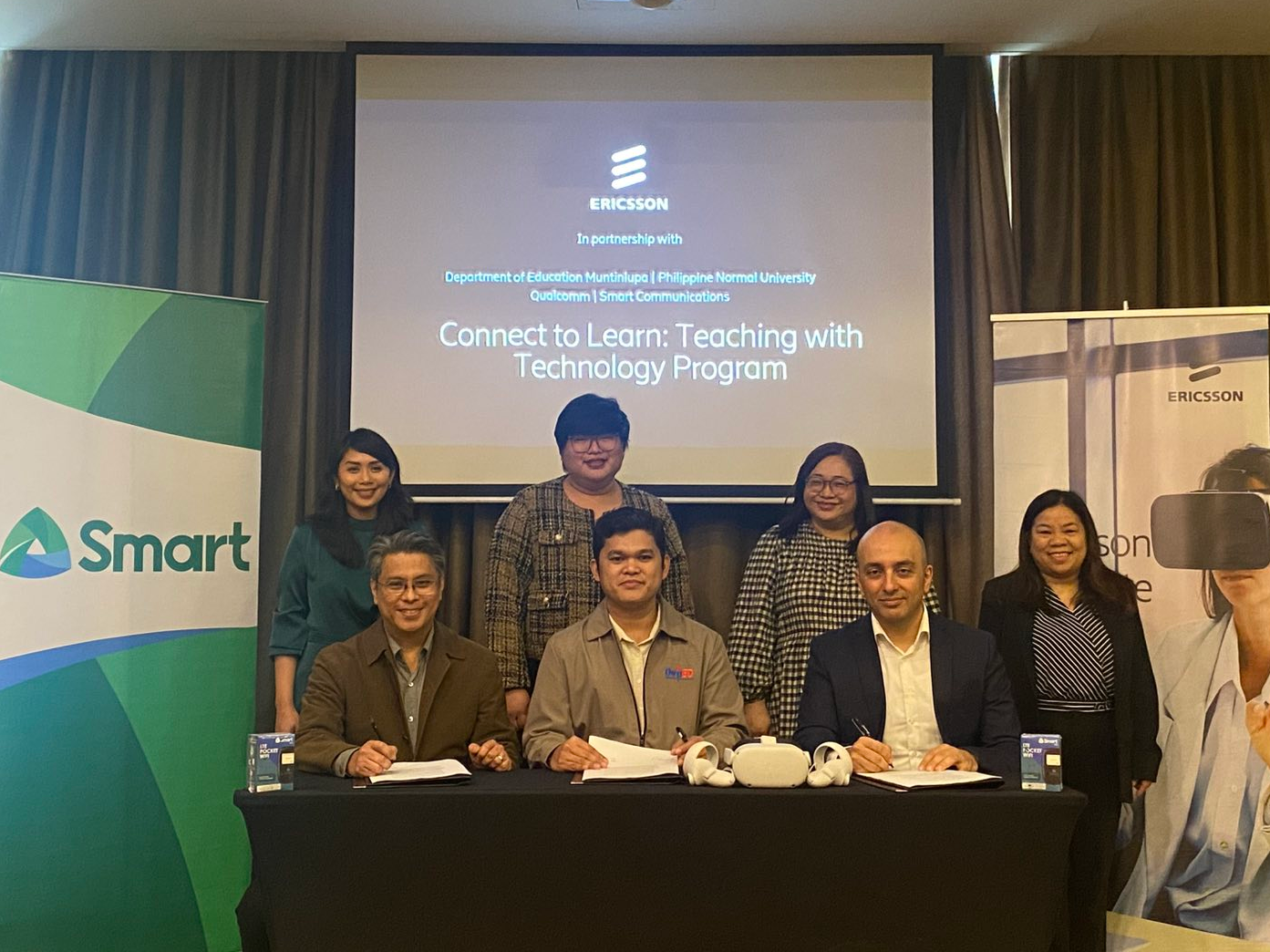
From left: Roby Alampay, Vice President for Public Engagement and Corporate Communications at PLDT and Smart; Dr. Jayboy Evano, Principal of the Sucat National High School, and Arda Cetiner, Ericsson Country Manager for Philippines. Standing behind are: Stephanie Orlino, Center Head/ AVP for Stakeholder Management; Dr. Paul dela Vega,Senior Education Program Specialist, Social Mobilization and Networking Section; Atty. Christina Choi-Castillo, Head of Legal, CU Singapore, Philippines and Brunei; and Ellen Alarilla, Sustainability Manager for Ericsson SE Asia, Oceania and India.
Ericsson’s mission: Empowering Filipino teachers through technology
Ericsson’s Connect to Learn program bridges the digital divide, improving the teaching experience in the Philippines. By integrating technology into classrooms, Ericsson enhances teacher training and prepares students for a rapidly evolving, tech-driven future.
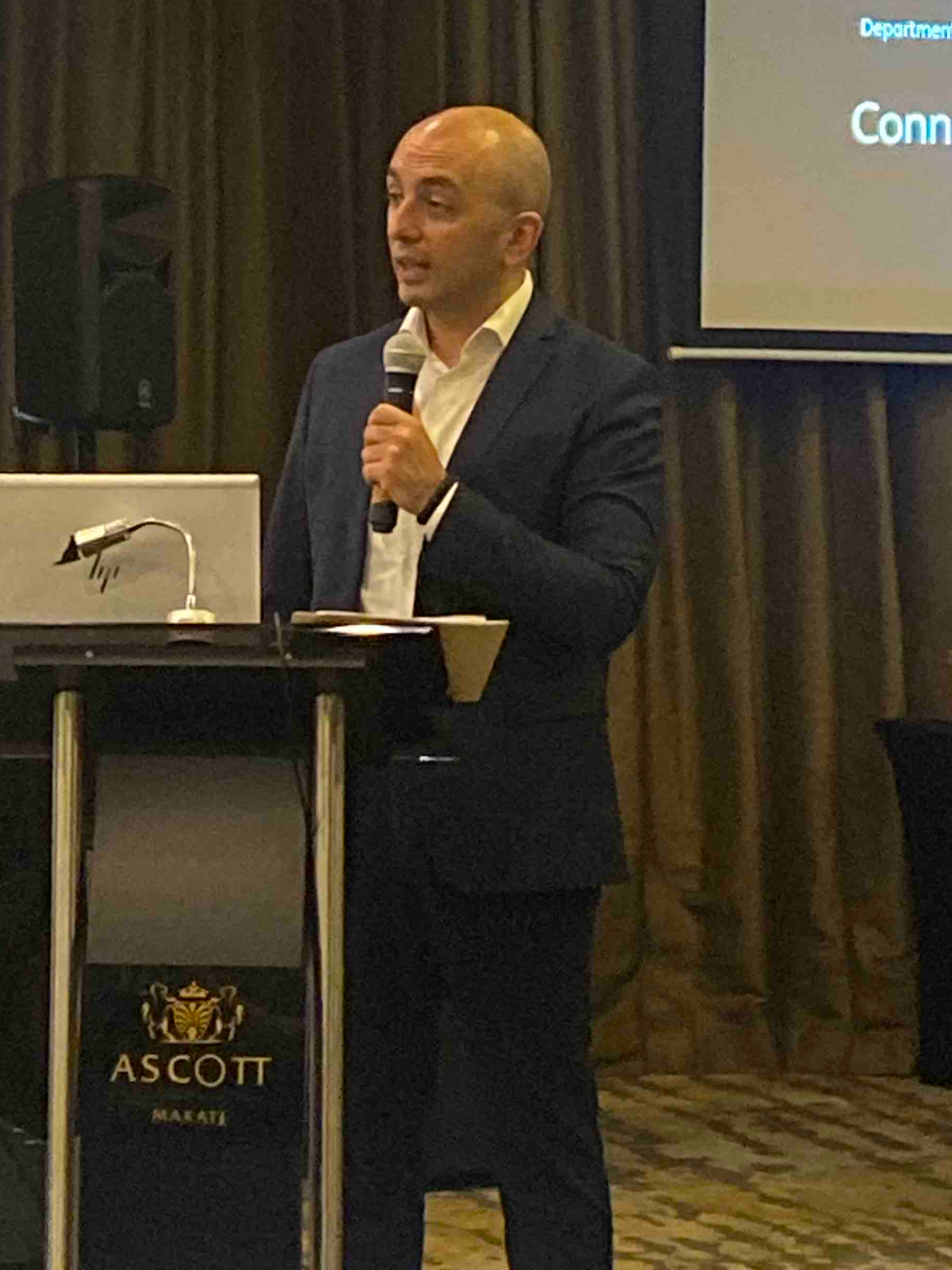
Arda Cetiner, Ericsson Country Manager for Philippines at Ericsson Event held in Ascott, Makati
Arda Cetiner, Country Manager of Ericsson for the Philippines, shares, “Our goal is to empower teachers with the tools to create engaging and collaborative learning environments. We want to ensure that educators can meet the challenges of the digital age and foster a future-ready generation of students.”
Key partners driving success
The Connect to Learn initiative thrives due to the collaboration of several key partners:
- SMART Communications: Provides essential connectivity to ensure that teachers in remote areas can access eLearning platforms.
- Department of Education (DepEd) Muntinlupa: Implements the program in schools, aligning it with national education goals.
- Qualcomm: Supplies VR headsets for interactive teacher training in virtual classrooms.
- Philippine Normal University (PNU): Designs and evaluates training modules that align with the country’s educational standards.
Latest results of the Connect to Learn program
The program’s first phase has yielded impressive results. Over 1,700 teachers from DepEd Muntinlupa and other areas have completed training, benefiting more than 80,000 students through enhanced teaching techniques. Teachers report improved ICT integration and the ability to deliver more engaging lessons.
Dr. Jayboy Evano of DepEd Muntinlupa explains, “The real goal is, of course, whether there’s an improvement in learning outcomes. That’s really our direction.”
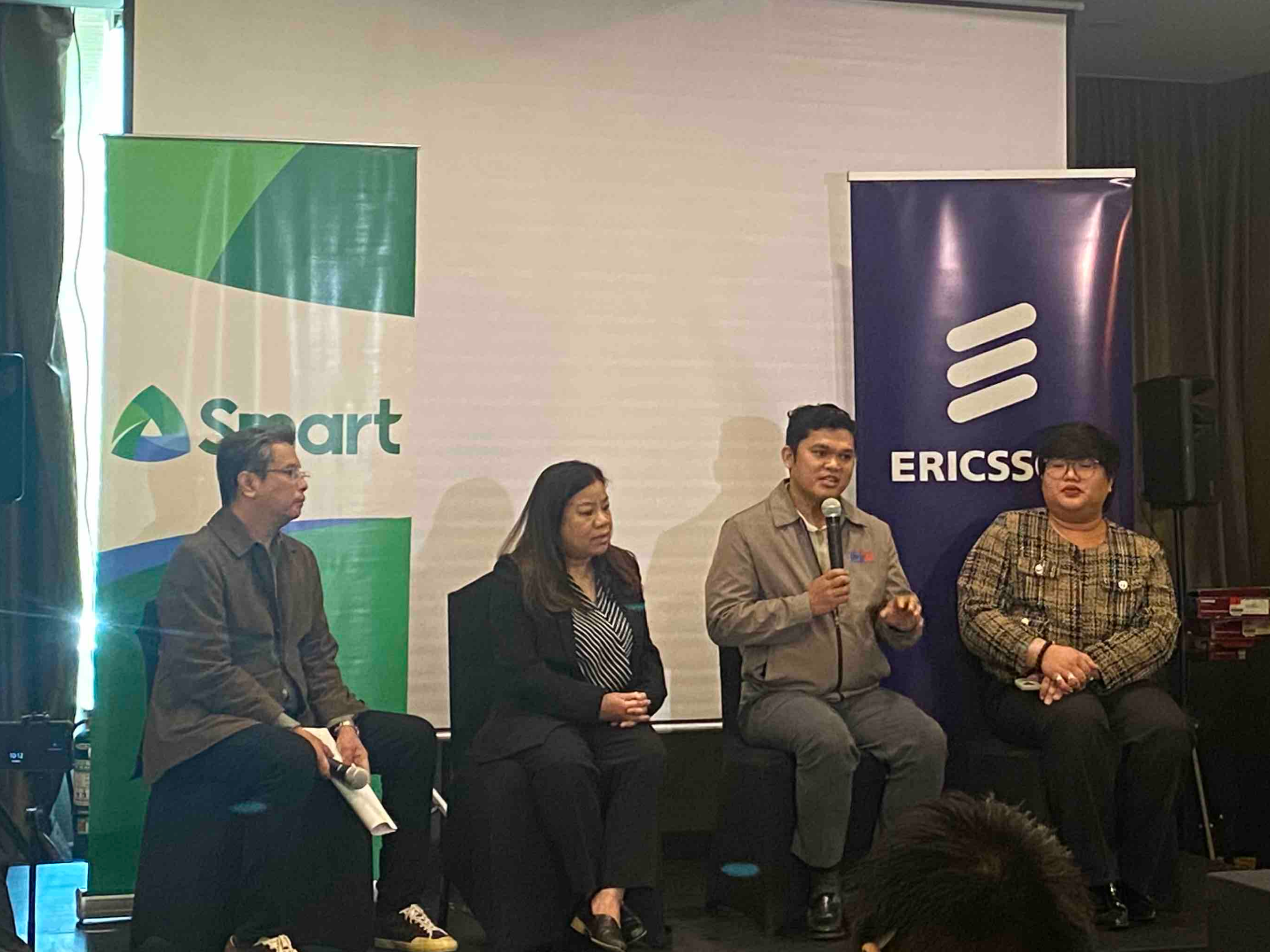
First left: Roby Alampay, Vice President for Public Engagement and Corporate Communications at PLDT and Smart; Ellen Alarilla, Sustainability Manager for Ericsson SE Asia, Oceania and India; Dr. Jayboy Evano, Principal of the Sucat National High School; and Dr. Paul dela Vega,Senior Education Program Specialist
In terms of success, the program evaluates not only whether it achieved its goal of training a specific number of teachers, but also whether the resources, such as VR headsets and connectivity, have reached the right participants. Partners like Ericsson, Qualcomm, SMART, and DepEd are instrumental in ensuring these resources are available to teachers.
Measuring the success of Connect to Learn
The program’s success is measured by the impact of technology on teaching and student outcomes. Dr. Evano states, “We measured the effect of the program in terms of short-term metrics. But as we move into the next phases, we’ll see exactly how it translates to better learning for our students.”
DepEd remains optimistic about the future, confident that ongoing teacher training will produce long-term positive outcomes. “We are happy that as we move to the next phase, we will continue collaborating to assess whether the program has really produced better outcomes,” said Dr. Evano.
The data already shows positive results. The program exceeded its initial target of training 1,000 teachers by reaching 1,700, proving even better than expected.
Connectivity as a key indicator of success
A crucial factor in the program’s success is the connectivity infrastructure. SMART Communications ensures that teachers, even in remote areas, can access the training platform.
As Roby Alampay, Vice President for Public Engagement and Corporate Communications at PLDT and Smart points out, “Connectivity is our clear and specific indicator of success. We cannot let teachers miss out on these opportunities due to a lack of resources.”
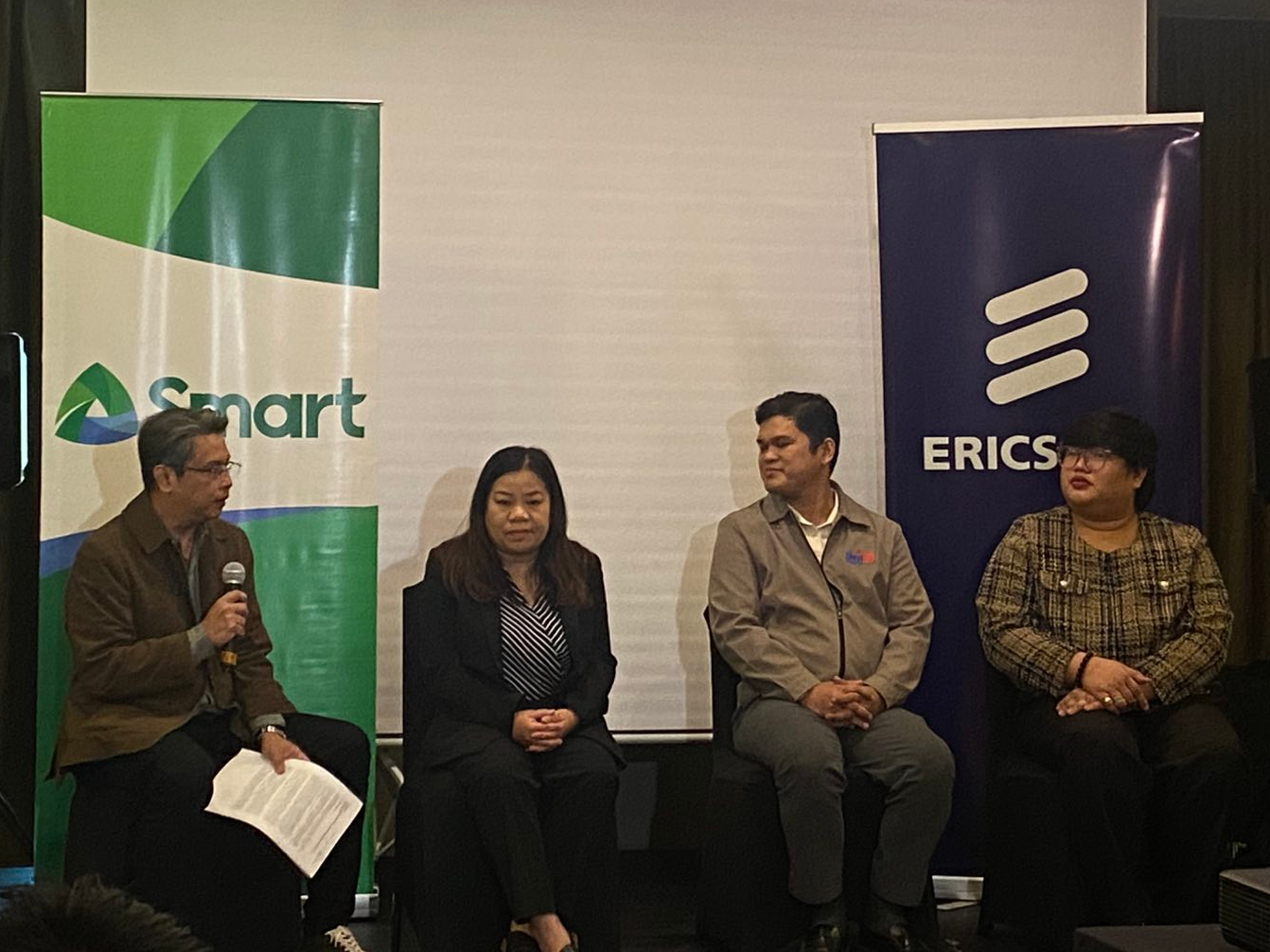
The Department of Education underscores the importance of connectivity as a key measure of success: “We must remind ourselves and our partners that connectivity is essential, and it will continue to be an important measure of success.”
Ericsson’s commitment to digital education in the Philippines
Ericsson’s collaboration with SMART Communications, Qualcomm, DepEd, and PNU showcases how public and private entities can unite to create a digitally inclusive education system. The success of Connect to Learn highlights the importance of providing teachers with the necessary tools to navigate the digital classroom and ensure a future-ready generation of students.
Ericsson remains dedicated to ensuring that no teacher is left behind in the digital transformation of education in the Philippines.




